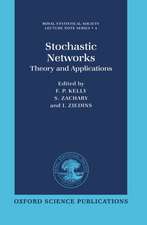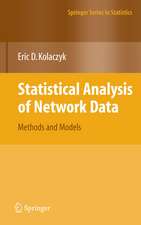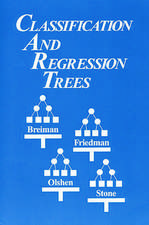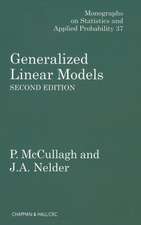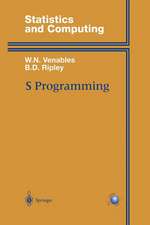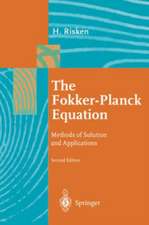The Theory of Branching Processes: Grundlehren der mathematischen Wissenschaften, cartea 119
Autor Theodore Edward Harrisen Limba Engleză Paperback – 29 mai 2012
Din seria Grundlehren der mathematischen Wissenschaften
-
 Preț: 353.84 lei
Preț: 353.84 lei - 24%
 Preț: 728.15 lei
Preț: 728.15 lei -
 Preț: 410.21 lei
Preț: 410.21 lei - 24%
 Preț: 587.87 lei
Preț: 587.87 lei - 17%
 Preț: 498.73 lei
Preț: 498.73 lei -
 Preț: 592.75 lei
Preț: 592.75 lei - 20%
 Preț: 692.49 lei
Preț: 692.49 lei - 24%
 Preț: 893.28 lei
Preț: 893.28 lei - 20%
 Preț: 824.73 lei
Preț: 824.73 lei - 24%
 Preț: 632.96 lei
Preț: 632.96 lei - 15%
 Preț: 596.69 lei
Preț: 596.69 lei - 15%
 Preț: 714.49 lei
Preț: 714.49 lei -
 Preț: 333.01 lei
Preț: 333.01 lei - 15%
 Preț: 473.16 lei
Preț: 473.16 lei -
 Preț: 356.49 lei
Preț: 356.49 lei -
 Preț: 484.43 lei
Preț: 484.43 lei - 15%
 Preț: 452.79 lei
Preț: 452.79 lei -
 Preț: 456.66 lei
Preț: 456.66 lei - 15%
 Preț: 708.75 lei
Preț: 708.75 lei -
 Preț: 423.08 lei
Preț: 423.08 lei - 15%
 Preț: 444.29 lei
Preț: 444.29 lei - 15%
 Preț: 527.79 lei
Preț: 527.79 lei - 15%
 Preț: 589.65 lei
Preț: 589.65 lei -
 Preț: 353.40 lei
Preț: 353.40 lei - 18%
 Preț: 727.66 lei
Preț: 727.66 lei -
 Preț: 387.96 lei
Preț: 387.96 lei - 15%
 Preț: 454.74 lei
Preț: 454.74 lei - 15%
 Preț: 481.03 lei
Preț: 481.03 lei -
 Preț: 464.55 lei
Preț: 464.55 lei -
 Preț: 348.77 lei
Preț: 348.77 lei -
 Preț: 362.04 lei
Preț: 362.04 lei -
 Preț: 488.12 lei
Preț: 488.12 lei - 15%
 Preț: 447.57 lei
Preț: 447.57 lei -
 Preț: 419.81 lei
Preț: 419.81 lei -
 Preț: 388.52 lei
Preț: 388.52 lei -
 Preț: 419.21 lei
Preț: 419.21 lei -
 Preț: 497.75 lei
Preț: 497.75 lei -
 Preț: 360.53 lei
Preț: 360.53 lei -
 Preț: 387.75 lei
Preț: 387.75 lei -
 Preț: 419.81 lei
Preț: 419.81 lei - 18%
 Preț: 725.75 lei
Preț: 725.75 lei -
 Preț: 453.78 lei
Preț: 453.78 lei -
 Preț: 386.39 lei
Preț: 386.39 lei
Preț: 581.01 lei
Preț vechi: 683.54 lei
-15% Nou
Puncte Express: 872
Preț estimativ în valută:
111.17€ • 116.08$ • 92.01£
111.17€ • 116.08$ • 92.01£
Carte tipărită la comandă
Livrare economică 05-19 aprilie
Preluare comenzi: 021 569.72.76
Specificații
ISBN-13: 9783642518683
ISBN-10: 3642518680
Pagini: 248
Ilustrații: XVI, 232 p. 6 illus.
Greutate: 0.34 kg
Ediția:Softcover reprint of the original 1st ed. 1963
Editura: Springer Berlin, Heidelberg
Colecția Springer
Seria Grundlehren der mathematischen Wissenschaften
Locul publicării:Berlin, Heidelberg, Germany
ISBN-10: 3642518680
Pagini: 248
Ilustrații: XVI, 232 p. 6 illus.
Greutate: 0.34 kg
Ediția:Softcover reprint of the original 1st ed. 1963
Editura: Springer Berlin, Heidelberg
Colecția Springer
Seria Grundlehren der mathematischen Wissenschaften
Locul publicării:Berlin, Heidelberg, Germany
Public țintă
ResearchCuprins
1.- 9. Asymptotic results when m < 1.- 10. Asymptotic results when m = 1.- 11. Stationarity of Zn.- 12. An application of stationary measures.- 13. Further results on the Galton-Watson process and related topics.- II. Processes with a finite number of types.- 1. Introduction.- 2. Definition of the multitype Galton-Watson process.- 3. The basic result for generating functions.- 4. First and second moments; basic assumption.- 5. Positivity properties.- 6. Transience of the nonzero states.- 7. Extinction probability.- 8. A numerical example.- 9. Asymptotic results for large n.- 10. Processes that are not positively regular.- 11. An example from genetics.- 12. Remarks.- III. The general branching process.- 1. Introduction.- 2. Point-distributions and set functions.- 3. Probabilities for point-distributions.- 4. Random integrals.- 5. Moment-generating functionals.- 6. Definition of the general branching process.- 7. Recurrence relation for the moment-generating functionals.- 8. Examples.- 9. First moments.- 10. Existence of eigenfunctions for M.- 11. Transience of Zn.- 12. The case ? ? 1.- 13. Second moments.- 14. Convergence of Zn/?n when ? > 1.- 15. Determination of the extinction probability when ? > l.- 16. Another kind of limit theorem.- 17. Processes with a continuous time parameter.- Appendix 1.- Appendix 2.- Appendix 3.- IV. Neutron branching processes (one-group theory, isotropic case).- 1. Introduction.- 2. Physical description.- 3. Mathematical formulation of the process.- 4. The first moment.-5. Criticality.- 6. Fluctuations; probability of extinction; total number in the critical case.- 7. Continuous time parameter.- 8. Other methods.- 9. Invariance principles.- 10. One-dimensional neutron multiplication.- V. Markov branching processes (continuous time).- 1. Introduction.- 2. Markov branching processes.- 3. Equations for the probabilities.- 4. Generating functions.- 5. Iterative property of F1; the imbedded Galton-Watson process.- 6. Moments.- 7. Example: the birth-and-death process.- 8. YULE’S problem.- 9. The temporally homogeneous case.- 10. Extinction probability.- 11. Asymptotic results.- 12. Stationary measures.- 13. Examples.- 14. Individual probabilities.- 15. Processes with several types.- 16. Additional topics.- Appendix 1.- Appendix 2.- VI. Age-dependent branching processes.- 1. Introduction.- 2. Family histories.- 3. The number of objects at a given time.- 4. The probability measure P.- 5. Sizes of the generations.- 6. Expression of Z (t, ?) as a sum of objects in subfamilies.- 7. Integral equation for the generating function.- 8. The point of regeneration.- 9. Construction and properties of F (s, t).- 10. Joint distribution of Z (t1), Z(t2),. . ., Z (tk).- 11. Markovian character of Z in the exponential case.- 12. A property of the random functions; nonincreasing character of F(1, t).- 13. Conditions for the sequel; finiteness of Z (t) and ? Z (t).- 14. Properties of the sample functions.- 15. Integral equation for M (t) = ? Z (t); monotone character of M.- 16. Calculation of M.- 17. Asymptotic behavior of M; the Malthusian parameter.- 18. Second moments.- 19. Mean convergence of Z (t)/n1 e?t.- 20. Functional equation for the moment-generating function of W.- 21. Probability 1 convergence of Z (t)/n1e?t.- 22. The distribution of W.-23 · Application to colonies of bacteria.- 24. The age distribution.- 25· Convergence of the actual age distribution.- 26. Applications of the age distribution.- 27. Age-dependent branching processes in the extended sense.- 28. Generalizations of the mathematical model.- 29. Age-dependent birth-and-death processes.- VII. Branching processes in the theory of cosmic rays (electronphoton cascades).- 1. Introduction.- 2. Assumptions concerning the electron-photon cascade.- 3. Mathematical assumptions about the functions q and k.- 4. The energy of a single electron (Approximation A).- 5. Explicit representation of ? (t) in terms of jumps.- 6. Distribution of X (t) = — log ? (t) when t is small.- 7. Definition of the electron-photon cascade and of the random variable N(E, t) (Approximation A).- 8. Conservation of energy (Approximation A).- 9. Functional equations.- 10. Some properties of the generating functions and first moments.- 11. Derivation of functional equations for f1 and f2.- 12. Moments of N (E, t).- 13. The expectation process.- 14. Distribution of Z (t) when t is large.- 15. Total energy in the electrons.- 16. Limiting distributions.- 17. The energy of an electron when ß>0 (Approximation B).- 18. The electron-photon cascade (Approximation B).- Appendix 1.- Appendix 2.

